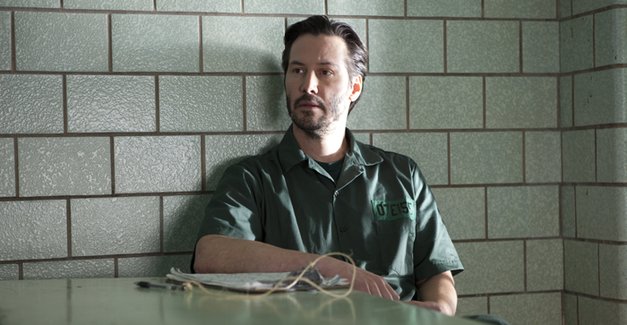|
Reviews of Recent Independent, Foreign, & Documentary Films in Theaters and DVD/Home Video

HENRY’S CRIME Who would make a movie about an average Joe with natural, untutored acting talent and then cast Keanu Reeves in the part, an actor mostly famous for the nuance he brings to the word, “Whoa”? This is one of the many unresolved questions and grievances that you will carry in your soul after leaving Henry’s Crime, a would-be comedic caper about a regular guy who participates in a local production of Chekhov’s The Cherry Orchard in order to rob a bank. Yes, you read that right. A tollbooth operator on the New Jersey Turnpike, Henry (Reeves) is wrongly blamed for the robbery of a Buffalo bank by a neighborhood lowlife—but he doesn’t rat out the thug. Not because the no-snitching culture has penetrated deep into the white lower-middle class, but because he sees prison as a way to escape his stale marriage (a no-fault divorce does not a movie make, apparently). In jail, he meets con man Max, who deliberately thwarts his parole hearings because he’s that stock prison character—the lifer too accustomed to the easy living on the “inside.” But Max—played by James Caan, a supremely talented actor falling even lower than the network television black hole of Las Vegas—upbraids Henry for being such a loser. So a few years later, when Henry gets out of prison, he decides to follow a fellow inmate’s advice (“If you did the time, you might as well do the crime”) and embarks on a voyage of self-discovery by way of knocking off the bank he was set up for. But wait! Henry’s scheme for robbing the bank involves traveling through an old, blocked-up bootlegger’s tunnel connecting the bank vault to a local theater. Gaining access to the tunnel means he must get a part in the play under production and cozy up to lead actress, Julie (Vera Farmiga). She and Henry first meet cute when she runs him over with her car. A Manic Pixie Dream Girl-type approaching middle age, she yearns to move to California. Meanwhile, Julie fights with her director, a passionate foreigner of indeterminate European nationality, who agonizes over Art and only exists in tone-deaf movies like this one. If it strikes you that no one acts with the most convincing motivation, it’s because Henry’s Crime seems to feature beings of another species—ones who outwardly resemble humans but otherwise lack all recognizable psychological reality. The wrong man goes to jail in order to escape a marriage. An attractive professional woman goes out with an unemployed, self-professed bank robber who stalks her. After the second date, she agrees to help him with a planned crime. More implausible than the characters are the plot twists. Henry discovers the prohibition-era tunnel that connects the theater to the bank vault when he sees a framed old newspaper article while at a urinal in the basement of a coffee shop. And the day the bank gets its big money drop-off—and thus when the robbery is scheduled—is the same as… the play’s opening night. (This is trouble, as Henry has fallen in love with Julie, and his predicament is somewhat paralleled, with rough, embarrassing clumsiness, by the plot of the play he’s in.) While director Malcolm Venville and the screenwriters might think they’re making a clever little heist movie with con games and some theater thrown in, they are no David Mamet. Or rather, they are the Mamet of Red Belt and not House of Games. The jokes land without mercy. “It’s a multilevel marketing paradiggim,” Joe, Henry’s meatloaf-brained sidekick, says, mispronouncing the word.
The disagreeableness of all this is softened somewhat by the movie’s
laidback tone and the filmmakers’ apparent refusal to make too much of
extraordinary coincidences, bad jokes, or anything else for that matter.
In other words, it’s boring. If you pay money to see this, the only
crime that’s taking place isn’t happening on screen.
Brendon Nafziger
|

